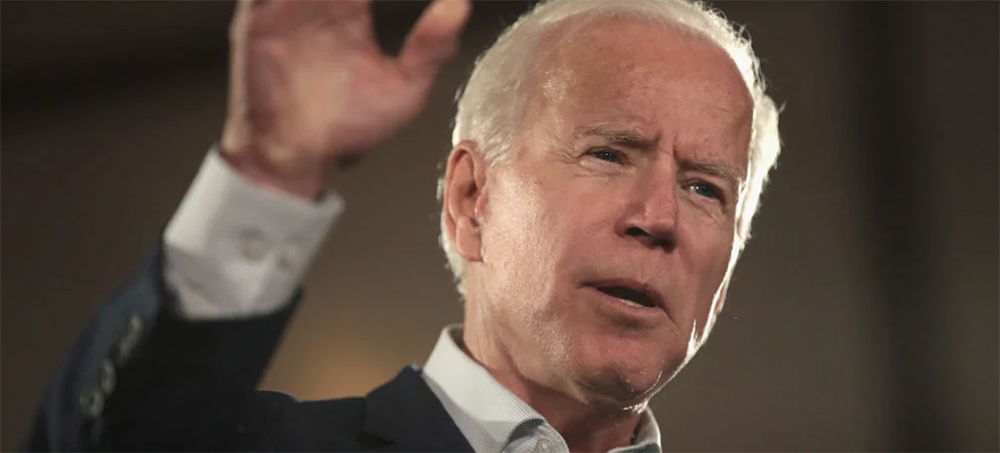Live on the homepage now!
Reader Supported News
Failure to pass Build Back Better would disillusion a generation of voters, and potentially fracture the Democratic party
The reasons are manifold. The bill is riddled with exemptions and subsidies for corporations like ExxonMobil, whose lobbyists were caught bragging about their role in shaping the text. It invests in highways, bridges and airports that – in the absence of an aggressive drive to electrify cars and planes – will only add to emissions from the transportation sector. And the climate funding it does contain is focused not on drawing down emissions but on preparing Americans for worsening floods, fires and superstorms. If this is all we get, the message to young people is clear: Exxon will continue to be allowed to drown your homes, but not to worry, the government is investing in some life vests. Good luck!
When it comes to passing the Build Back Better bill, the handful of extremist, Wall Street-backed Democrats who have obstructed it for months are now asking for something they have done very little to earn: trust. It would be one thing if congresspeople like Josh Gottheimer and Abigail Spanberger gave the impression of fully understanding the gravity of the climate crisis and pulling out all the stops to make a commensurate response politically possible. Instead, they come off as narrow-minded political animals, too blinkered by the game to see the world around them burning.
It seems doubtful that any of them have read – much less internalized – the findings of the latest IPCC report. If she had, Representative Spanberger might have registered the irony in her insisting that Biden “be normal and stop the chaos”. As if it weren’t precisely those ideas long considered “normal” – massive fossil fuel subsidies, economic austerity, energy market deregulation – that are leading us straight into planetary chaos.
Even more worrisome, their excuse for obstructing Build Back Better seems less than fully genuine. They insist they need to see an estimate from the Congressional Budget Office on how the bill would affect the national deficit. But they seemed little bothered when the CBO made it known that their BIF would expand it by $256bn. They also seem intent on ignoring the many analyses – including several from the treasury department itself – showing that Build Back Better would actually reduce the deficit. And that’s not to even mention the fact – still rarely mentioned, somehow! – that climate disasters cost Americans $1.9tn in 2020 alone.
Even if their concern about the deficit is genuine, it’s grounded in a fundamental misapprehension of contemporary macroeconomics, which is undergoing a revolution in how it understands national debt and deficit spending. It’s as if they made some sort of superstitious pact, circa 1980, to admit no additional research from either economists or climate scientists. Even the former chief economist of the CBO made it clear that their insistence on a CBO score is ludicrous. “This is a really important package that will change people’s lives, and that should be the guiding principle,” she said in reference to Build Back Better. “The 10-year window [for CBO scoring] is arbitrary. Aiming for deficit neutrality is arbitrary – it’s arbitrariness on top of arbitrariness.”
But despite all of these red flags, most of the self-styled House “moderates” – with a few notable exceptions, including Spanberger – have promised to eventually vote for Build Back Better in its current form. It is hard to overstate how much rests on that single-paragraph promise. A failure to pass Build Back Better would, at this point, amount to a betrayal so large it would disillusion an entire generation of young voters, and potentially fracture the Democratic party itself. The muted applause for BIF would be completely drowned out by recriminations, and the party would stumble into the midterms in open civil war, having failed to pull us back from the brink of worldwide catastrophe.
Maybe Abigail Spanberger would hold on to her seat, but she would probably find herself isolated and ineffectual in a Republican Congress, desperately clinging to her fantasy of “normality” as she cranked up the A/C on another blistering summer day.
Meanwhile, President Biden’s legacy would be sealed. For all his adulation of Franklin Delano Roosevelt, he would have failed to live up to the one test that cemented his predecessor as a hero. It’s worth remembering that FDR passed the New Deal over the violent protestations of Wall Street bankers, some of whom tried to stage a coup to replace him. Biden faces a similar test on Build Back Better: can he discipline the wealthiest and most dangerous industry in history, who will stop at nothing to make the “moderates” kill the bill? Can he wrest the helm of history from the fossil fuel executives, who would just as soon watch it all go down in flames?
If he fails to pass Build Back Better, China’s taunts will ring true, though for the wrong reasons. The American political system will have proven itself incapable of passing extremely popular policies to address the climate crisis – not because it was too democratic, but because it was never democratic enough.
With stakes this high, it’s no wonder the Progressive Caucus leader, Representative Pramila Jayapal, asked each “moderate” to look her in the eye as they signed their name to the Build Back Better promise. That look might have contained the anxiety of my entire generation. Not only our fear of being played, not only our dread of inheriting a squandered planet, but our ongoing hope – despite all evidence to the contrary – that our leaders may actually choose to lead.
Follow us on facebook and twitter!
PO Box 2043 / Citrus Heights, CA 95611



No comments:
Post a Comment